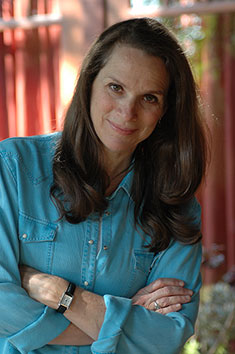Was she in love with him? "Yes, but I knew that I can do better than he. We were in business. . . ." Her voice drifts off, as if to suggest theirs was a marriage of convenience. What followed were years of the Depression, when they lost the store. While her husband worked as a grocery clerk, earning $20 a week in her brother's store, she raised money for the local hospital, the kosher one with two kitchens. During World War II, she sent her son off to war; he returned from Japan, wanting to become a psychoanalyst. Her daughters became a bookkeeper and a schoolteacher. Not long after Izzy died in 1951, she married a milkman, Sam Weinreb.
For Tessie, it is a virtue to never reveal one's true feelings, especially sadness. When asked how she's dealt with her grief, she says, "I never made any sour face to anybody. Nobody knew what's inside of me. They still don't." She catches herself, as if she's said too much. "I'm talking now," she adds, "but I shouldn't."
"Why not?"
"Pheh," she replies, waving her hand.
It's 12:30. She snaps on the TV. "Shut up!" she's yelling at the TV set. Her soap opera, "The Young and the Restless," is on, and she's bored by one of the plot lines. She likes to watch this show for the blind character who she claims has never blinked, a sign to Tessie of fine acting ability. But more, she's interested in the trial of a woman who's been charged with killing her husband.
If she'd had the opportunity, my grandmother tells me, she would have been a lawyer. Or better still, a writer. She's never admitted this girlhood fantasy to me before. With my pen and notebook in hand, I search her milky gray eyes and feel my shoulders lighten. The flash of connection, a flesh-and-blood link of desire, spanning three generations. Not that she says any more. She doesn't need to.
She sits in her recliner chair with the blue embroidered cloth draped over the headrest. "Oh, here's the caca-mercial again," she complains.
The phone rings. Bad news. My mother has learned she has breast cancer. She's opted for a mastectomy.
The phone rings again. It's Pearlie, her voice shaky, bordering on hysterical. She asks for my permission to call my mother, even though she's just spoken to her. She's made the same call to my older sister.
"I don't want to be a bother to her," she tells me, saying she doesn't want my mother to worry that she's worrying. "I hesitate 10 times before I call. I don't want to be a nudge.
"See, when your children are babies and you learn to protect them, no matter how old they are, they're always your children. They're still your babies. And that feeling never leaves.
"I know I'm a pain in the ass," she adds, her voice cracking. "Please forgive me, Joyala. But she's my baby. My baby. Why can't it be me, not her?"
When I hear my grandmother, fragile, frightened, nervous, wanting to help but knowing she can do nothing, I hear myself--and I cannot bear to listen.
In the weeks that follow, while my mother is recuperating from surgery, I speak to Pearlie more often than usual. Normally, we talk on the phone weekly and see each other about twice a month--for family gatherings, brunches, birthday parties--and invariably she ushers me home with another batch of French toast for my kids. But now, we've become allies in the worry department. My mother's cancer brings me closer to my grandmother, who tells me that her greatest wish in life is that her daughter be well.
For the time being, anyway, her wish has come true.
In June, Pearlie, my mother, Lucy and I watch my middle child, Gus, perform in a little show at the Odyssey Theater--a four-generation cheering section. Afterward, Pearlie hands me an envelope to deliver to him. In it, she's enclosed $15 in cash and a note telling Gus how much she loves him. The following week, she bequeaths her old typewriter to my kids, too. Always giving, always bearing hugs and kisses, even in print with her Xs and O's.
And I wonder, how is it that someone who grew up with so little can give so much?
Born on the Lower East Side in 1902, Pauline Rosenwasser hated her given name, so she changed it to Pearl. Her parents immigrated from Austria in 1894. Her father pressed women's coats. Her mother opened a series of candy and dry goods stores in Brooklyn, often leaving her children unattended. While playing on a fire escape one day, Pearlie watched as a cousin fell three stories, suffering a minor concussion. She remembers her mother saying, guiltily, "It should only have been one of my children," and later wondering if she had cursed her own family. Of seven children, three died young--two baby boys and a 13-year-old girl, from a weak heart.



